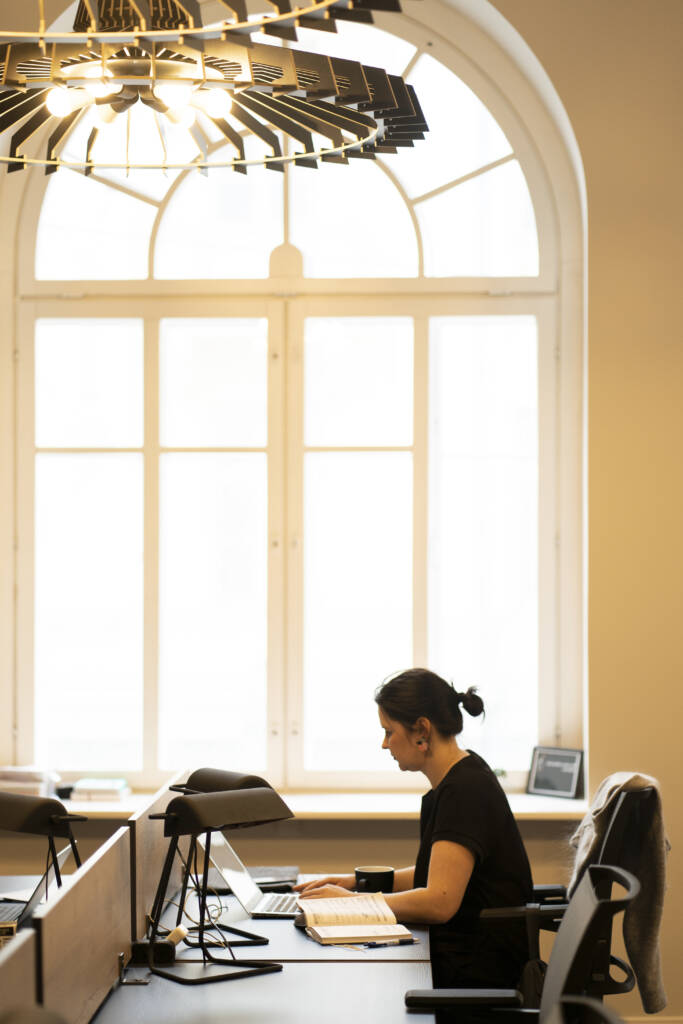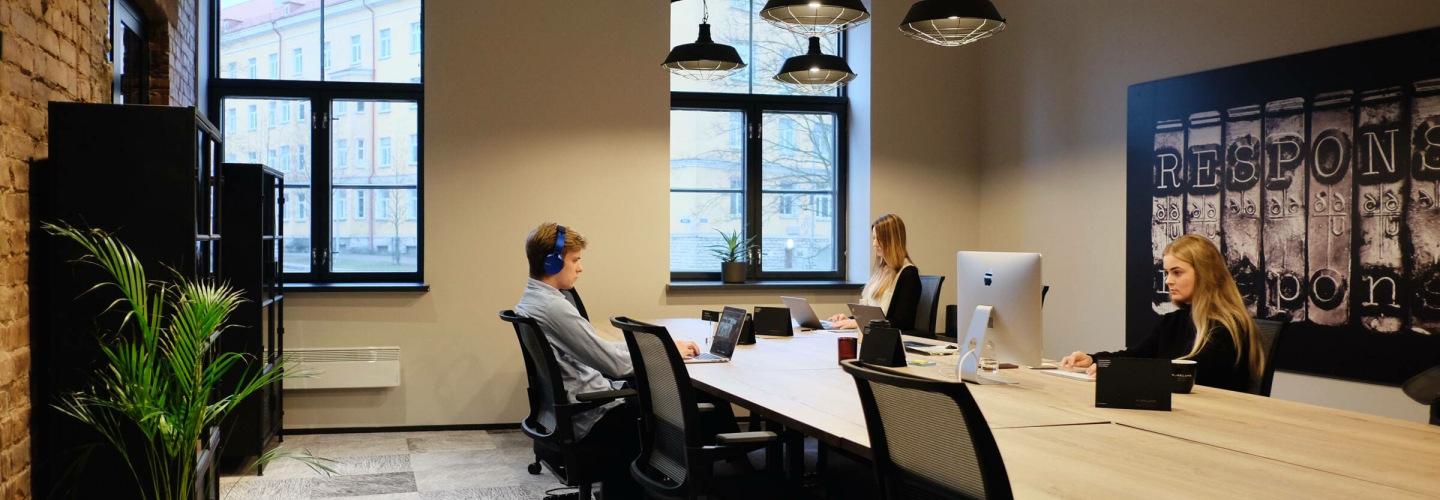“For several years “happiness” was more or less a taboo term in business. Around 6-7 years ago, I had to explain why the companies’ training plan should involve a course about workplace happiness. Now the way of thinking is changing, and people are starting to understand its relevance,” commented Tiina Saar-Veelmaa, the expert on work-life happiness at the workshop organised by The Academy of Good Thoughts. Why should we talk about happiness in relation to work-life? How to create and nurture it?
People who consider themselves happy, are often more successful at their job - work seems more manageable for them. They are more effective and creative in problem-solving and are willing to contribute highly to fulfilling the common goals. We know that people satisfied with their job are also not too open to new job offers - therefore the overall level of happiness should be relevant to all companies.
Sticks and carrots
Saar-Veelmaa explained that everyone has a different understanding of workplace happiness, it depends on our perception, previous experiences and expectations. Keep in mind that in rapidly changing circumstances, we need the support much more. To illustrate how our brain works in different situations, let’s use the “stick and carrot” example.
Imagine an axis with “a stick” in one end and “a carrot” in the other. “Stick-mode is a survival mode, and it is triggered when we find ourselves in uncertain and insecure situations - when we are evaluated or criticised, while we are super-busy or not free in our decision making. Stick-mode makes us focus on potential threats - our attention fades, thoughts are not clear, memory fails, and stress level gets high. In these situations, we use our energy mostly to protect ourselves,” Saar-Veelmaa explains.
On the other end of the axes, we have a carrot-mode, which activates when we are allowed to do things at our own pace or when well-rested. We start acting exactly the opposite - we enjoy our work as it goes swiftly, we have a lot of positive energy to share, we’re focused and willing to contribute. In the current challenging times, people frequently feel like the stick-mode is full on - the environment is uncertain, and there are many changes at work and our everyday life.
“To feel happy and nurture the feeling of happiness, we need to find balance.
Everyone has a different recipe for happiness

- Spiritual happiness includes learning something new, gaining new experiences or knowledge, inspiration, exciting new understandings and revelations,
- Emotional happiness is related to our social experiences and relationships and feelings associated with memories and previous experiences.
- Physical happiness depends on our health, sleeping and eating habits and physical activity.
The three levels influence our wellbeing in a very different way, depending on the day and current feeling. When considering happiness at work more specifically, it relates to the following: does the work we do offer enough? Does it provide an opportunity to learn new things or have new exciting experiences? Are relationships with colleagues supportive? "Happiness lies in the balance between all the levels, and for each one of us, this balance we are searching for is different", emphasises work-happiness expert.
Saar-Veelmaa points out another three relevant work-life happiness factors - Mammoth, Heart and Self. The first one marks an exciting challenge and is related to our instinct to survive due to evolution. At ancient times it was essential to kill the mammoth for the extended family, and our needs have not changed too much - we still look for work that has a similar level of meaning and leaves a visible mark for future generations. Saar-Veelmaa relates that factor with a trend where many highly valued specialists, who have a daily office-job, start developing completely different practical skills such as gardening, renovations etc. It helps us to leave a visual mark of our actions.
The wish to act according to our heart is rooted in birth and early childhood. We have the need for validation; we want to be recognised and seen. It gives us a feeling that our work matters and makes a difference in the world. The last element in the formula of work-life happiness is doing a job while being our authentic selves - with our strengths, weaknesses, and dreams. "I wish that we would all have the courage to stay true to our dreams - to think how and what kind of work we would like to do in three years - and then follow the steps one by one," Saar-Veelmaa encourages. As we know, we will have a longer life compared to previous generations, and we will stay active for longer. Therefore we could easily have 4-5 different careers during a lifetime if we want to. We could have a fascinating job, that we love, now and change it to something very different in the future, if that seems engaging then.
Cosy atmosphere

Danes are the well-known champions in creating a cosy atmosphere - hygge, as they call it. Also, Swedes have a way to create a supportive work environment. It is called Fika, and it stands for a coffee break - taking place twice a day as stated in the law, and it has one rule - you can only talk about everything except work. Chat-breaks help to raise efficiency and support good relations between colleagues. "Fika is something we could all benefit from, but for Estonians not talking about work could be a challenge," work happiness expert smirks.
What should one do, when work-life happiness seems out of reach. Veelmaa suggests to analyse what exactly is missing first - is its lack of recognition, not enough or too many challenges or something else. Afterwards, it would be good to think about what the employer (and your direct manager) could do to change the circumstances. Teams could benefit from discussing how happy or satisfied they feel at the workplace and reasonable adjustments to boost individual and collective happiness. Of course, it requires courage and acknowledgement from the management.
"No-one can make another person happier than he feels himself. Meaning, also the leaders must have someone to discuss their problems and not go through them all alone - it could be someone from the board or a professional coach outside the organisation," Saar-Veelmaa says. For creating and experiencing workplace happiness, good management is crucial. "Work-culture should be about sharing a common joy, not about focusing on personal agendas. Working in a happy organisation makes people more beautiful, better at their job, smarter and leaves them in a better shape they were before joining the company," Saar-Veelmaa adds.
Four ideas to boost your workflow:
- Ask your colleague(s) to a real-life or online-fika, at least once a day;
- At the beginning of the meeting focus on the positive and be grateful, so the stress would not get overwhelming;
- To boost the motivation among your team, look at least 6 seconds into their eyes at the next online-meeting and think "God, how beautiful this person is" at the same time;
- Say: Thank you! (Every day).
The Academy of Good Thoughts and Workland organise regular educational workshops focusing on work-life efficiency and mental wellbeing. Keep an eye on the agenda by subscribing to the newsletter as the engaging seminars are coming up every month.





